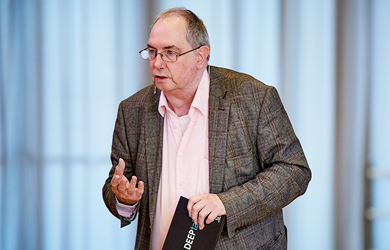
How to deal with stress
Here, I present 5 tips to take you safely through life’s stressful and anxious moments – and to help you feel more peaceful, confident and happy as you live your life with diabetes.
Glucagon-like peptide 1 (GLP-1) is a naturally occurring hormone in the body that has a number of benefits, particularly for people with type 2 diabetes1.
Therefore, GLP-1 RA (receptor agonist) treatments have been developed to mimic the function of the GLP-1 hormone and increase its effect as it occurs in people without type 2 diabetes1, 2.
GLP-1 RA is a class of non-insulin medication that assists your body’s natural ability to regulate blood sugar and appetite2.
GLP-1 RA can help reduce the risk of major cardiovascular events, such as heart attack and stroke, by preventing arterial damage in people with type 2 diabetes who have established cardiovascular disease2-4.
GLP-1 RA may help reduce your cardiovascular risk by preventing or slowing the progression of atherosclerosis* as well as by lowering blood pressure and lipid levels2-5.
*Atherosclerosis is also known as atherosclerotic cardiovascular disease – try saying that five times fast!But you can call it ASCVD for short.
November 2023 and IE23DI00223